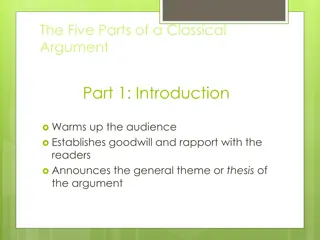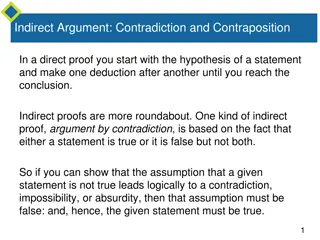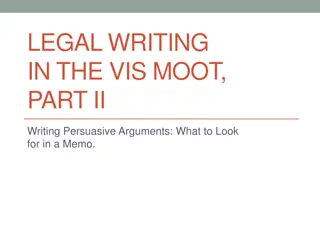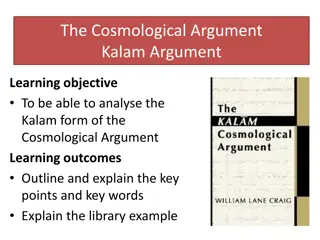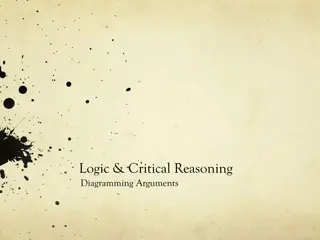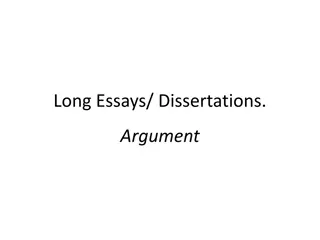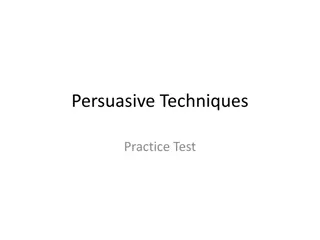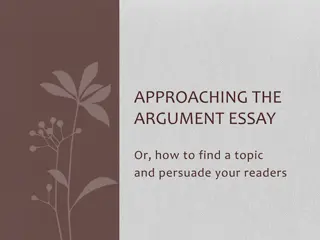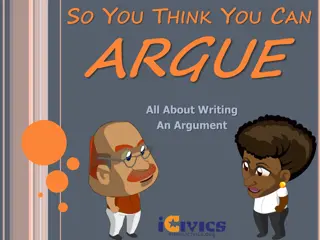Should Students Have Homework? Crafting a Persuasive Argument
Crafting a persuasive argument on the topic of whether students should have homework, this piece presents a well-structured approach for expressing an opinion effectively. It guides the reader through forming an introduction with a clear position, developing supporting points in body paragraphs, and ending with a compelling conclusion. Readers will gain insights into constructing persuasive essays on contentious topics like homework policies in education.
Download Presentation

Please find below an Image/Link to download the presentation.
The content on the website is provided AS IS for your information and personal use only. It may not be sold, licensed, or shared on other websites without obtaining consent from the author.If you encounter any issues during the download, it is possible that the publisher has removed the file from their server.
You are allowed to download the files provided on this website for personal or commercial use, subject to the condition that they are used lawfully. All files are the property of their respective owners.
The content on the website is provided AS IS for your information and personal use only. It may not be sold, licensed, or shared on other websites without obtaining consent from the author.
E N D
Presentation Transcript
Writing a Series of Paragraphs Expressing an Opinion
Task: Write a minimum of 3 paragraphs expressing an opinion on the topic below. Develop your main idea with supporting details (proofs, facts, examples, etc.). Purpose and Audience: An adult who is interested in your opinion. Length: The lined space provided for your written work indicates the approximate length of the writing expected. (This will be 2-3 lined pages). Topic: Should students have homework?
Write your introduction: 1. Choose a position (opinion) on the topic: yes / agree or no / disagree (NOT both). 2. Draft a topic sentence stating your position. Use key words from the topic to draft your sentence. List 2-3 points here that support your position. I agree that . because A, B, (C). WHY? Point A WHY? Point B WHY? Point C
Write your body paragraphs (2-3): 1. Beginning with your first point, provide 2-3 reasons that support your position. POINT A Proof 3 Proof 1 Proof 2
2. Continuing with a new paragraph, identify your second point and provide 2-3 reasons that support your position. (Repeat for a third point if needed). POINT B Proof 3 Proof 1 Proof 2
Write your conclusion: 1. Restate your position and the 2-3 points used to support it. 2. Finish with a closing thought on the topic. Therefore, I agree that because A, B, (C).




